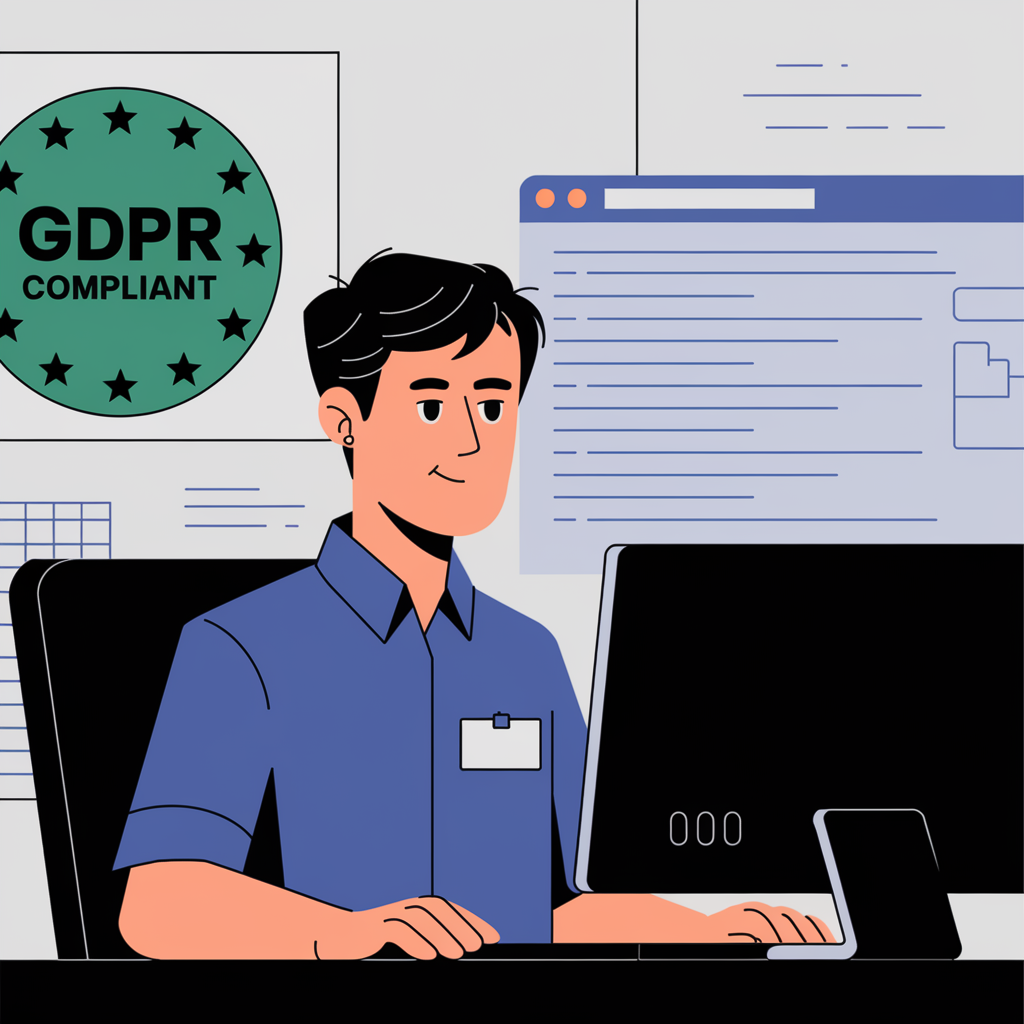Why Data Privacy Matters More Than Ever in 2025
Data privacy has evolved into a critical concern in our increasingly interconnected world, influencing individuals, businesses, and governments on a global scale. As we step into 2025, the significance of protecting personal and sensitive information has grown to unprecedented levels. Technological advancements have revolutionized the way we store, share, and access data, but they have also created new vulnerabilities and intensified the risks of cyber threats. Safeguarding data privacy is no longer just a technical challenge—it has become a collective societal responsibility.
Protecting privacy isn’t just a technical issue; it’s something we all need to care about as a society. When privacy isn’t protected, it can lead to serious problems, such as financial losses, damage to reputations, and even threats to national security. In this blog, we’ll explore why data privacy matters so much in 2025 and share simple steps you can take to protect your information.
The Growing Value of Data
In 2025, data has become so important that many people call it “the new oil.” This is because businesses rely heavily on data to grow and succeed. They use it to learn about customer habits, improve their services, and come up with new ideas. Governments also use data for things like making policies, keeping the country secure, and providing better public services. But as data becomes more valuable, it’s also becoming a bigger target for hackers and unethical people who want to misuse it.

The Rise of Big Data
Big data refers to the massive amounts of information that companies can now collect and analyze. For example, they might track what you buy, your online activities, or even your medical records. While this information can be used to create helpful products, improve healthcare, or solve big problems, it also creates risks. The more data companies collect, the higher the chances of it being stolen, leaked, or misused.
Personal Data as a Commodity
Your personal information, like your name, email address, and shopping history, is now treated as something that can be bought and sold. Cybercriminals often steal this data and sell it on illegal markets (like the dark web). Some companies use personal data in ways that aren’t ethical, such as showing ads designed to trick you into buying things. This has made people more aware of how valuable their data is and why protecting it is so important.
The Current Threat Landscape
Cybersecurity Breaches
In 2025, cyberattacks are more advanced and dangerous than ever before. Hackers are using sophisticated methods to break into systems and steal sensitive information. These breaches can cause serious problems, including financial losses, stolen identities, and damage to a person’s or company’s reputation. For example, when hackers target healthcare organizations, they can access private medical records, which can then be used to harm individuals or sell the data illegally.
Artificial Intelligence (AI) Exploits
AI has brought many benefits but has also become a powerful tool for hackers. Cybercriminals now use AI to carry out precise and convincing phishing scams, tricking people into giving away personal information. Artificial Intelligence can also identify weaknesses in systems faster than ever, making it easier for hackers to attack.
Additionally, deepfake technology—where AI creates realistic but fake videos or audio—makes it possible to spread false information or commit fraud in convincing ways.
Internet of Things (IoT) Vulnerabilities
The growing number of IoT devices, like smart home systems, connected cars, and fitness trackers, has created new opportunities for hackers. These devices collect and store much data but often lack strong security features. If just one IoT device is hacked, cybercriminals can access an entire network, putting all connected devices and data at risk.
Regulatory Responses to Data Privacy
Stricter Regulations in 2025
Governments and organizations around the world have introduced stronger rules to address growing concerns about data privacy. These regulations are designed to protect individuals’ personal information while ensuring that businesses handle data responsibly and transparently.
The General Data Protection Regulation (GDPR)
The GDPR, a law created by the European Union, remains one of the most important data privacy regulations globally. It requires companies to be clear about how they use personal data, get consent from users, and only collect data that is necessary. These rules ensure that businesses prioritize privacy and give individuals more control over their information. Many countries have adopted similar laws inspired by the GDPR.

Emerging Regulations
New data privacy laws in regions like Asia and the Middle East have further improved global standards. These regulations address modern challenges, such as ensuring the ethical use of artificial intelligence, safely transferring data across countries, and protecting digital identities. They help fill the gaps left by older laws and tackle issues unique to today’s technologies.
Industry Standards
In addition to government regulations, specific industries like healthcare and finance have developed their own privacy rules. These industry-specific guidelines focus on protecting sensitive data, such as medical records and financial information. Companies that fail to follow these rules face stricter penalties, encouraging them to adopt better security measures and privacy practices.
The Role of Individuals in Protecting Data Privacy
While governments and companies play a major part in ensuring data privacy, individuals also need to take responsibility for protecting their personal information in 2025. Here are some ways to do so:
Practicing Digital Hygiene
Good digital habits are essential for staying secure online. This includes:
- Avoiding suspicious links or attachments to prevent phishing attacks.
- Using strong, unique passwords for each account to make it harder for hackers to guess.
- Enabling multi-factor authentication (MFA), which adds an extra layer of security.
- Keeping software updated to fix vulnerabilities that hackers could exploit.
Understanding Privacy Policies
Before providing personal information to any website or app, it’s important to read their privacy policy. While this can seem tedious, understanding how your data will be used, stored, and shared helps you make informed decisions about whether to trust the platform.
In 2025, many tools are available to help individuals protect their data, and they’ve become more user-friendly. Some examples include:
- Virtual Private Networks (VPNs): These hide your internet activity and keep it private.
- Encrypted messaging apps: Tools like Signal ensure your messages can’t be read by anyone else.
- Privacy-focused browsers: Browsers like Brave or DuckDuckGo prioritize user privacy by limiting tracking and collecting less data.
By adopting these practices and tools, individuals can play a crucial role in safeguarding their privacy in today’s digital world.
The Ethical Imperative for Businesses
Businesses today have both a moral and legal responsibility to protect the data of their customers. As we move into 2025, practicing ethical data management is no longer optional—it’s essential for success.
Building Trust with Consumers
Consumers are becoming more aware of how their data is used, and they are choosing to do business with companies that value their privacy. When a company is transparent about how it collects, stores, and uses personal information, it builds trust. Clear privacy policies and ethical data practices lead to loyal customers who feel confident that their data is being handled responsibly.
Adopting Privacy by Design
Privacy should not be an afterthought—it needs to be built into every aspect of a company’s operations. This concept, known as privacy by design, means that businesses consider privacy from the very start when developing systems, products, or services. By making privacy a foundational element, companies reduce risks and ensure they meet legal requirements.
Investing in Cybersecurity
A proactive approach to cybersecurity is vital for protecting data. Companies should regularly conduct security audits to identify weaknesses, provide training for employees to prevent human error and adopt advanced cybersecurity technologies, such as AI-driven threat detection. These measures help prevent data breaches and ensure that businesses are prepared for emerging threats. By investing in cybersecurity, companies safeguard their reputation and the trust of their customers.
The Future of Data Privacy
As we look toward the future, data privacy will continue to be a complex and changing challenge. New technologies, such as quantum computing and artificial intelligence (AI), will create both opportunities for better privacy protection and new risks. To keep up with these changes, individuals, businesses, and governments must be proactive in adapting and innovating.
The Role of Education
Raising awareness about data privacy is crucial for creating a safer digital world. Schools, businesses, and community organizations should play an active role in educating people about how to protect their personal information and the importance of privacy. The more individuals understand the risks and solutions, the better equipped they’ll be to safeguard their data.
Collaborative Efforts
Data privacy is a global issue, and no single country or organization can solve it alone. Governments and businesses must work together to create universal standards, share knowledge, and adopt best practices that protect privacy on a global scale.
Embracing Privacy-Enhancing Technologies
There are emerging technologies that offer strong solutions for protecting data. Some examples include:
- Homomorphic encryption: This allows data to be processed without exposing it to unauthorized access.
- Differential privacy: This technique ensures that individual data remains private, even when analyzing large datasets.
- Decentralized data storage: This method reduces the risk of data breaches by distributing data across multiple locations instead of storing it in one central place.
By embracing and investing in these privacy-enhancing technologies, we can create a safer, more secure digital environment that respects individuals’ privacy.
5 Exciting Ways Generative AI is Revolutionizing Content Creation you want to learn !
Conclusion
Data privacy is more important than ever in 2025. As technology continues to advance, we share more personal information online, making it easier for cybercriminals to exploit it. With threats like data breaches, AI misuse, and vulnerabilities in connected devices, protecting our information is a growing challenge. However, through stronger laws, responsible actions by businesses, and individuals taking steps to secure their data, we can manage these risks. Data privacy is not just about following the rules—it’s about respecting and protecting people’s personal information. By working together and embracing new privacy technologies, we can build a safer digital world.



helpful
great
I think it is a good article
Wao
Very informative
Helpful and informative article
Impressive
Brilliant👍
Good 👍
Amazing
Good nice
5agcsx